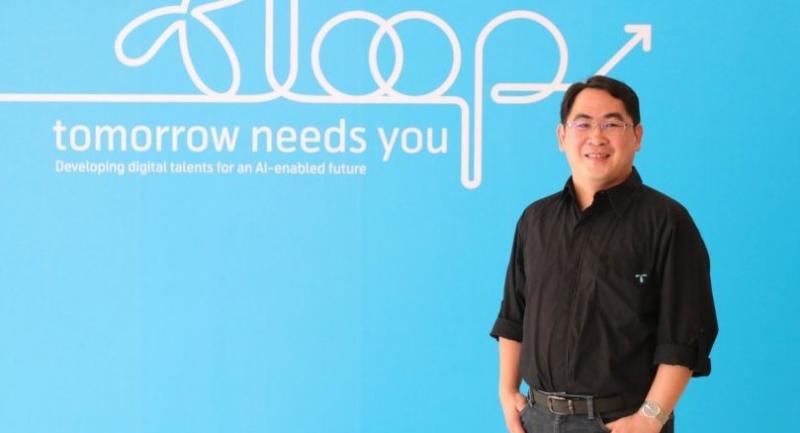What’s holding back artificial intelligence in this country?

The pursuit of artificial intelligence is over 60 years old. But a recent explosion in available data and computational power has finally made AI a kind of new electricity for the current industrial era. For Thailand to keep up with the AI revolution, the most critical factor is to ensure data-science students can access some of this data and use it to solve real-world business cases.
Artificial intelligence has until now been held back by two main factors: a lack of data and a lack of processing power. The issue of processing power has been resolved by the ever lower prices of micro-chips, meaning the amount of operations one can complete for the cost of one dollar has increased a trillion times since we launched men to the moon.
The amount of data produced has increased at a similarly rapid pace due to our digital lifestyles. Ninety per cent of the world’s data was created in the past two years. Every picture you take, every message you send, every GPS location your phone registers is adding to this ever-growing mountain of information.
To keep up with our changing world, Thailand’s data-science students also need access to both computing power and data, with the latter being the hardest to come by. Data is what powers all the global tech giants like Google, Facebook and Apple. It is most often proprietary and locked behind privacy agreements that require careful anonymisation before a student can gain access to it. This is where partnering with a business could help academics. Data-science students need access to real-world data so they can be challenged to use it in ways that produce real-world benefits, not just theoretical analysis.
On August 16, DTAC unveiled a brand new artificial intelligence laboratory built in partnership with Thammasat University’s Sirindhorn International Institute of Technology (SIIT). Located at Thammasat University’s Rangsit campus just north of Bangkok, the DTAC SIIT AI Lab is a direct response to the challenges facing data scientists in Thailand.
It connects data scientists and leading professors with concrete business cases provided by DTAC, whose customers produce billions of data sets each day. But it also supports DTAC’s AI strategy and ambition to train a new generation of digital talents for Thailand. The investment is worth Bt12 million over the course of two years. One case that DTAC and SIIT are working on is an AI-driven ID verification system that increases security while speeding up the process of SIM registration verification. The solution creates a new customer experience, resulting in faster and more reliable service. We also already use AI in fraud prevention and error detection.
AI is also changing how we interact with machines. Today, over 50 per cent of US households have smart speakers, which is only possible because machines can now process human speech. This marks the rise of invisible interfaces that rely on sight and sound rather than on us clicking, tapping and typing. In the future, these invisible interfaces that allow high levels of personalisation even in brick-and-mortar retail.
Partnerships such as the one between DTAC and SIIT will be absolutely key to developing a generation of Thai data scientists that understand how to channel data to build concrete, real-world solutions to everyday pain points. With over 200 students training at the DTAC SIIT AI Lab each year, I’m positive we will prove Thailand has no shortage of digital talent. We just need to work together to give them the means to reach their full potential.
Ukrit Salyapongs is head of Channel Strategy & Performance Management Division, DTAC.
